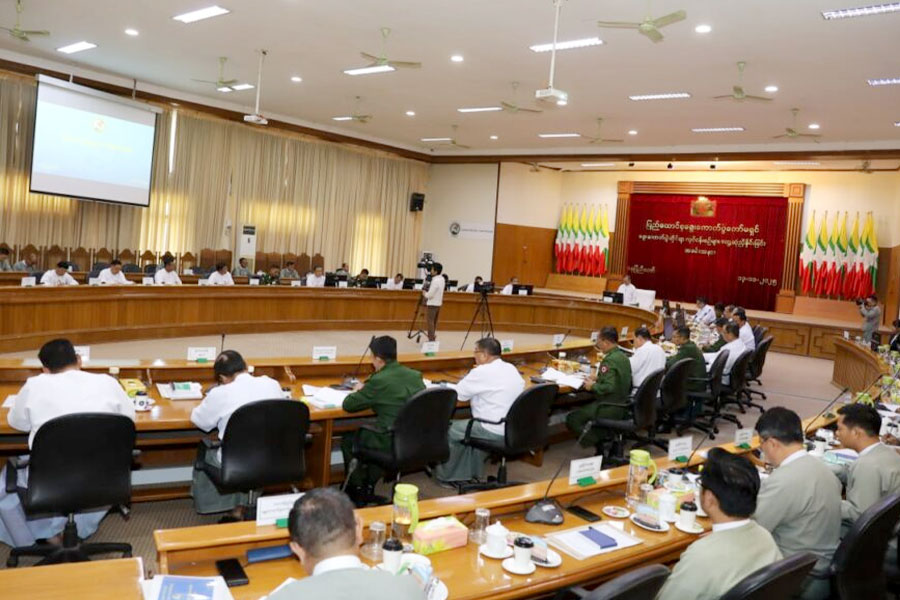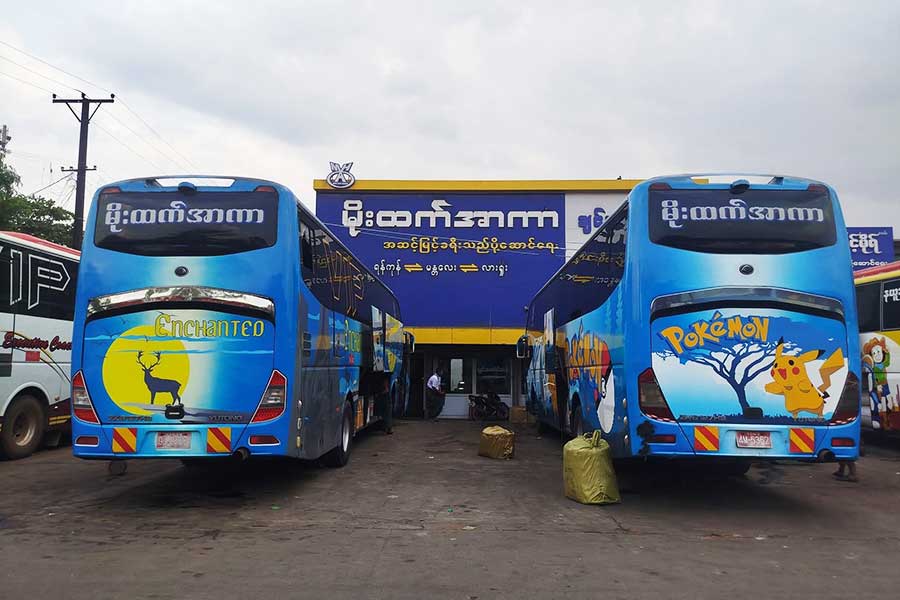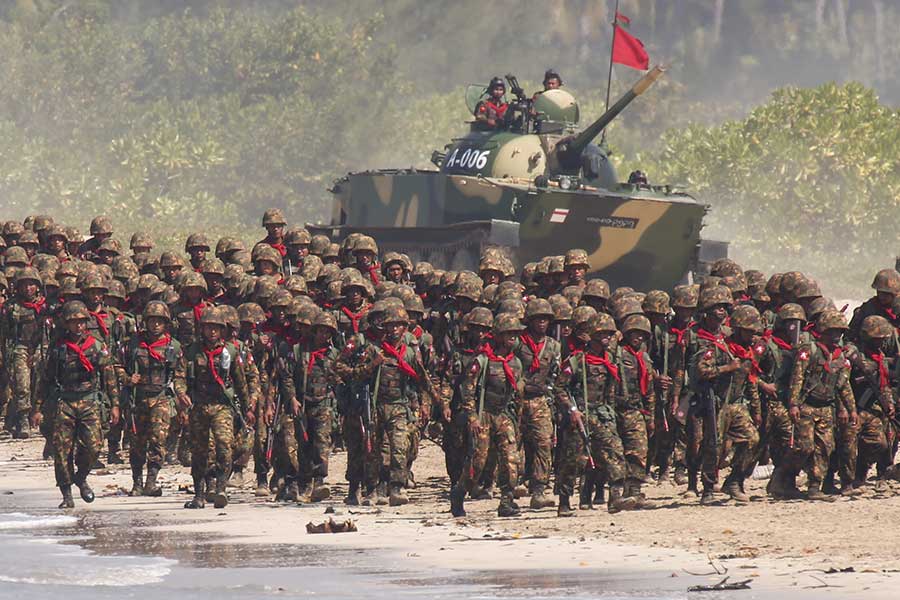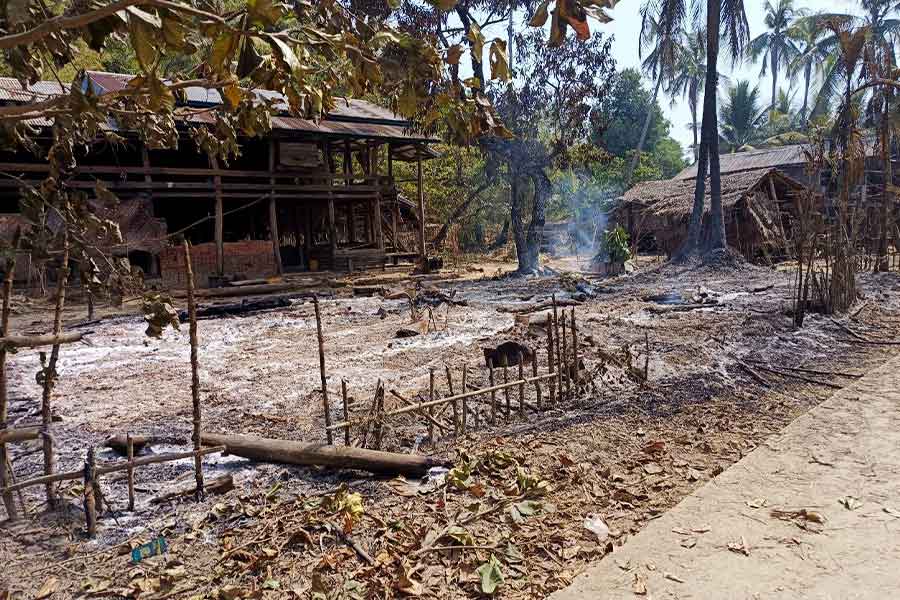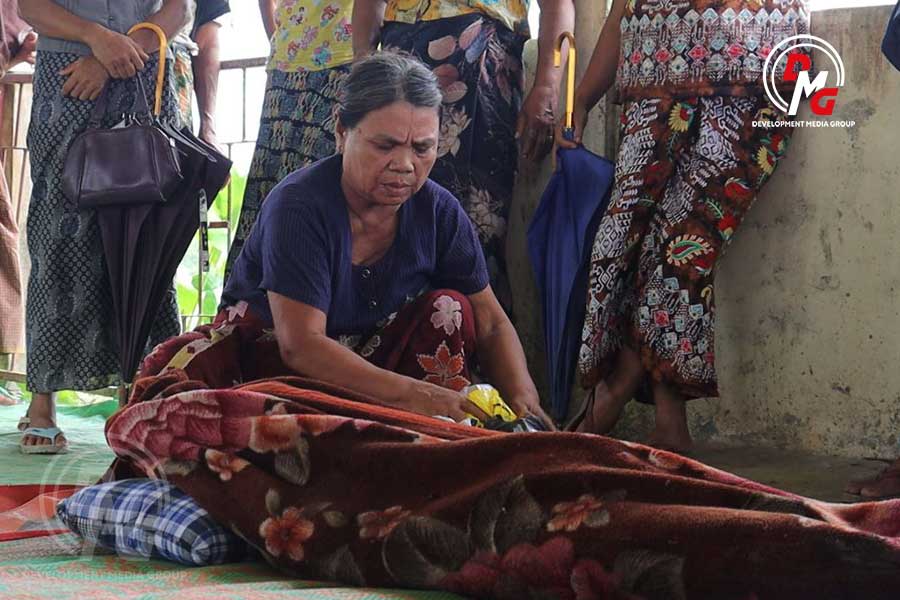- UEC announces 1,025 MPs elected in 2025 general elections
- Junta tightens travel restrictions on Arakanese people in mainland Myanmar
- Regime steps up offensive toward Arakan State via Ayeyarwady coastal route
- Elderly IDP killed, two others injured in junta airstrike on Kyaukphyu village
- AAPP urges urgent international action as junta crimes against humanity escalate
Arakan Agricultural Sector Needs Modern Technology, Financing to Compete Globally
Local products from all over Myanmar are being exported to neighbouring Bangladesh through the Sittwe and Maungdaw border trade camps in Arakan State.
06 Mar 2022
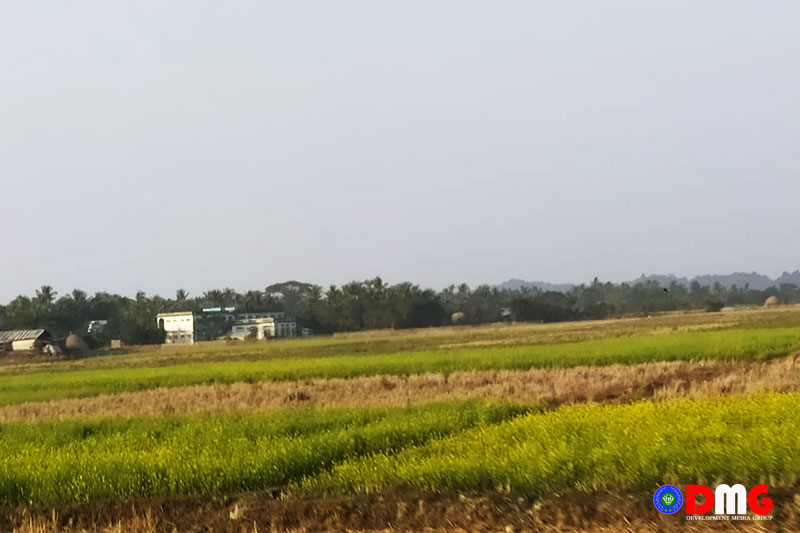
DMG Newsroom
Local products from all over Myanmar are being exported to neighbouring Bangladesh through the Sittwe and Maungdaw border trade camps in Arakan State.
Onion, dried plum, dried tamarind, ginger, freshwater fish, dried rohu, silver pomfret, and velvet slippers are the main exports to Bangladesh. In the past, Arakan State products such as bamboo, rattan, salt, rice, peas, peanuts, betel nuts, turmeric powder, chili, maize, spinach, watermelon and other fishery products were also exported to Bangladesh.
Although Arakan products were of good quality, production and exports were weak, said U Aung Aung, general secretary of the Arakan State Chamber of Commerce and Industry. “Farmers in Arakan State are planting corn this year but not next year, so it is difficult for us to buy,” he said.
He added that in order to export goods to the markets in Bangladesh, businesspeople in Myanmar opt to export only certain goods instead of uncertain ones.
Around 75% of the rural population in Arakan State is engaged in farming, which is well known as an agriculture-based state. Apart from being a coastal area, it is also a rain-fed and well-drained state due to the monsoon rains from the Arakan Mountains.
According to the Arakan Farmers’ Union, there are more than 12.5 million acres of agricultural land in Arakan State, of which more than 542,000 acres are winter crops. Winter crops such as eggplant, potatoes, chili, cucumbers, groundnuts, mulberry, watermelon and cabbage are grown mainly in townships such as Ponnagyun, Kyauktaw, Mrauk-U, and Minbya in Arakan State.
Currently, the acreage of winter crops in Arakan State has been reduced by 60% nationwide, according to the Arakan Farmers’ Union.
U Aung Kyaw Mya, a farmer from Pyaung Seik village in Kyauktaw Township, said the lack of market guarantees and declining labour pool had reduced the number of farmers engaged in agriculture.
“In the past, paddy was grown regularly in Arakan State. Every farmer grows his own winter crop. Later, the paddy market collapsed and fertiliser prices soared, making it difficult for farmers to grow paddy. Even if winter crops are grown, there are fewer farmers because there is no market guarantee,” he explained.
More and more farmers in Arakan State are moving away from uncertain markets and unsuccessful businesses. As cultivated acreage dwindles, the volume of locally grown produce declines, with Arakan State residents having to pay more for imported fruits and vegetables.
U Myo Min Aung, in-charge of the Arakan Farmers’ Union, said the government should work to revive the agriculture industry in Arakan State.
“The government has a responsibility to revive agriculture in Arakan State. The government must support farmers to grow winter crops. Other responsible organisations should also help local farmers in Arakan State,” he added.
U Maung Htwe, a farmer in Kyauktaw Township, said farming in Arakan State, which hosts more than 12.5 million acres of farmland, can be successful if modern agricultural technology is used.
“Farmers also need technology markets and capital to expand agriculture. Now that farmers are living in poverty, we have nothing. We have much potential, and if the government does these three things, there is no reason for agriculture to fail,” he said.
Currently, some Arakanse farmers are cultivating summer paddy, but are facing water shortages due to a lack of irrigation dams.
“If the government creates the market demand for farmers, Arakan State’s agriculture will prosper and local exports will increase,” said U Aung Aung, secretary of the Arakan State Chambers of Commerce and Industry.
“In terms of insurance, there is a sense that you will only buy goods from other countries this year. In this regard, bilateral government agreements are needed. For example, the government needs to make promises about how much it will buy salt for five years,” he explained.
In the past, agriculture was widely practised in Arakan State, so rice and produce were not only consumed domestically but also exported. According to a survey conducted by the Arakan Farmers’ Union, the average annual output of Arakan State products breaks down to about K800 million ($448,000) a day.
Arakan State has long been known for its rice cultivation. Arakan State produced an average of 150,000 tonnes a year for domestic consumption and export in the 19th century, with more than 30 rice mills along the banks of the Sat Yoe Kya Creek in Sittwe.
During British rule, Sittwe was known as a “rice capital” due to the success of agriculture in Arakan State. Arakan State’s agricultural economy has declined since Myanmar’s independence in the mid-20th century, and today it is one of the poorest states in the country.
U Khin Maung Gyi, vice chairman of Rakhine Economic Initiative Public Co Ltd (REIC), said that in order for Arakan State’s manufacturing and trade to flourish, agriculture and livestock should be promoted in the state.
The All Arakanese Solidarity Committee released a statement last year urging Arakanese entrepreneurs and businesspeople to invest in local agriculture and food manufacturing because consumers in Arakan State depend on foodstuffs and consumer goods sourced from other parts of Myanmar or imported from abroad.
“Most farmers do not have access to government loans, making it difficult to grow paddy this rainy season,” U Khin Maung Gyi told DMG last year. “Since government loans are unreliable, I think businesspeople should help farmers grow paddy in their respective townships.”




